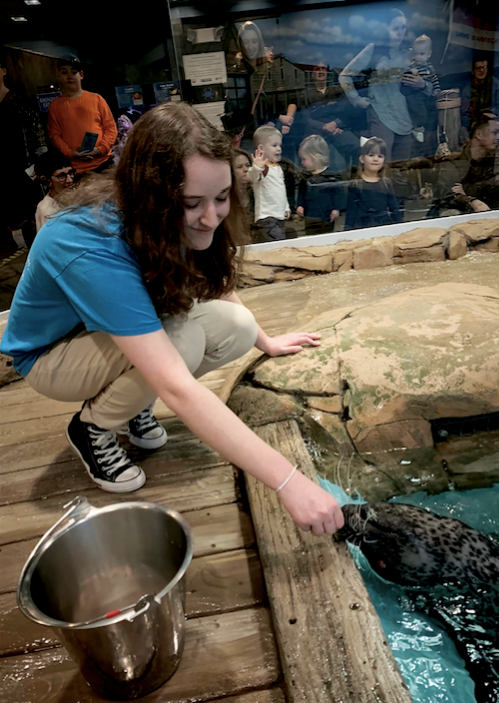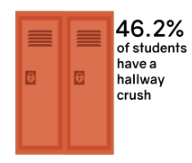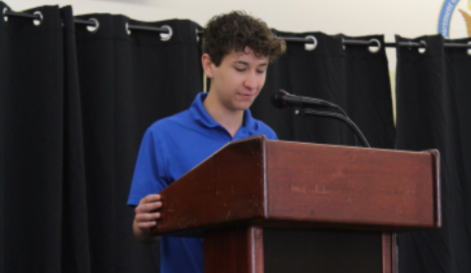Seniors work through the challenges of mentorship
Photo courtesy of Michelle Moroses
Moroses cares for a seal during her last day of mentorship at Jenkinson’s Aquarium, Jan. 25.
May 10, 2019
While other high school seniors are sitting in class or eating lunch at 11:15 a.m., senior Grace McCaffrey of Middletown, like a number of other CHS seniors, is traveling to her mentorship site, Six Overground in Asbury Park. On the drive, McCaffrey prepares to spend three hours coding and developing an app for the company. While McCaffrey enjoys going to her mentorship, she finds that CHS’s senior mentorship program, albeit unique, is not without its challenges.
Oftentimes, seniors face setbacks as early as when they start searching for a mentorship location. McCaffrey said she initially had trouble finding a mentorship in the Monmouth County area that matched her career interests.
“Setting up my mentorship was extremely stressful,” McCaffrey said. “All of the students taking the tech classes have mentorship during one of two marking periods which means around half of us are all looking for a tech mentorship at the same time. This poses a problem due to the serious lack of tech companies in Monmouth County.”
Mentorship teacher Bill Bengle said that setting up one’s mentorship can prove difficult for students who are not very detail-oriented or strong at time management.
“[Students] generally have about six to seven weeks to get their mentorship set up, and oftentimes, students will wait until the last minute and find that not everything happens at their timetable,” Bengle said.
Other seniors said that financial issues can also pose great challenges. Senior Tali Petto of Marlboro, who mentored at Folio Art Glass in Colts Neck during the second marking period, needed to drive 40 miles per day and spent about $250 on gas that quarter. Senior Emily McNeill of Colts Neck mentored at M studio in Asbury Park third marking period and paid between $1.50 and $3 everyday for parking, as well.
“I was okay with it because I really enjoyed my mentorship, but I do think it’s unfair that students are expected to pay for parking and gas, and I wish the school would be able to compensate for that,” McNeill said.
According to senior Amanda Lavery of Marlboro, monetary factors can bring about transportation conflicts. Lavery did not have her license during first marking period, her parents worked during the school day and she could not afford to pay for public transportation. Consequently, she chose to complete her mentorship at Monmouth Museum at Brookdale Community College during second marking period; another senior mentoring at Brookdale drove her there, and her mother rearranged her work schedule to drive her home.
“I know that there are always other options, which is what I ended up having to do, but when you’re forced to do a mentorship based on ‘what’s best in terms of getting a free ride’ instead of ‘what’s best in terms of your career goals,’ it defeats the whole purpose of the class,” Lavery said.
Like Lavery, Petto believes that much of a student’s mentorship experience depends on the particular site, and factors such as a lack of options, transportation and timing can potentially hinder a positive outcome.
“If you were to complete your mentorship at a legit business in a role that you planned on having in the future, it could be a very helpful experience. But for the majority of us, that was not the case,” Petto said.
McCaffrey agreed that one’s mentorship site can greatly influence the experience.
“[I] have the ability to work for a company that does exactly what I want to do in the future,” McCaffrey said. “Although there have been some small difficulties, it doesn’t outweigh the experience I am gaining in my industry.”















